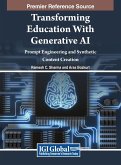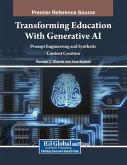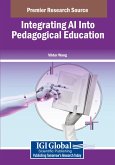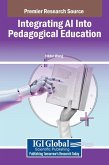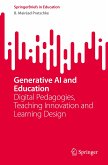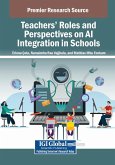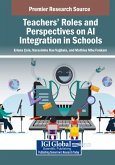This book examines the ongoing emergence of generative artificial intelligence (GenAI) in education. It focuses both on the potential and effects of GenAI and on its limitations, risks and challenges. Particular emphasis is placed on the impact that GenAI has on pedagogy and knowledge assessment across a range of educational fields and disciplines, as well as on teacher preparation, development, productivity and workload.
While artificial intelligence has gradually penetrated the field of education over the last 30 years, the emergence of GenAI which we are now witnessing is changing the game. From a perspective that transcends national specificities, the analyses address all levels of education as well as the development of education policies. In terms of epistemology and methodology, the work draws on a variety of research frameworks (theoretical, conceptual, empirical) and methodologies, including qualitative, quantitative and mixed-methods research.
This work offers a series of suggestions and recommendations, as well as avenues for future research in a range of areas, including AI/GenAI literacy, teacher preparation and development, curriculum updating, pedagogy, knowledge assessment, teacher effectiveness, learner development, education policy and ethics. It also warns of the risks posed by GenAI, particularly in terms of deskilling, breaches of data privacy and research integrity, bias, social justice, ecological sustainability and loss of meaning of the teaching profession.
While artificial intelligence has gradually penetrated the field of education over the last 30 years, the emergence of GenAI which we are now witnessing is changing the game. From a perspective that transcends national specificities, the analyses address all levels of education as well as the development of education policies. In terms of epistemology and methodology, the work draws on a variety of research frameworks (theoretical, conceptual, empirical) and methodologies, including qualitative, quantitative and mixed-methods research.
This work offers a series of suggestions and recommendations, as well as avenues for future research in a range of areas, including AI/GenAI literacy, teacher preparation and development, curriculum updating, pedagogy, knowledge assessment, teacher effectiveness, learner development, education policy and ethics. It also warns of the risks posed by GenAI, particularly in terms of deskilling, breaches of data privacy and research integrity, bias, social justice, ecological sustainability and loss of meaning of the teaching profession.


